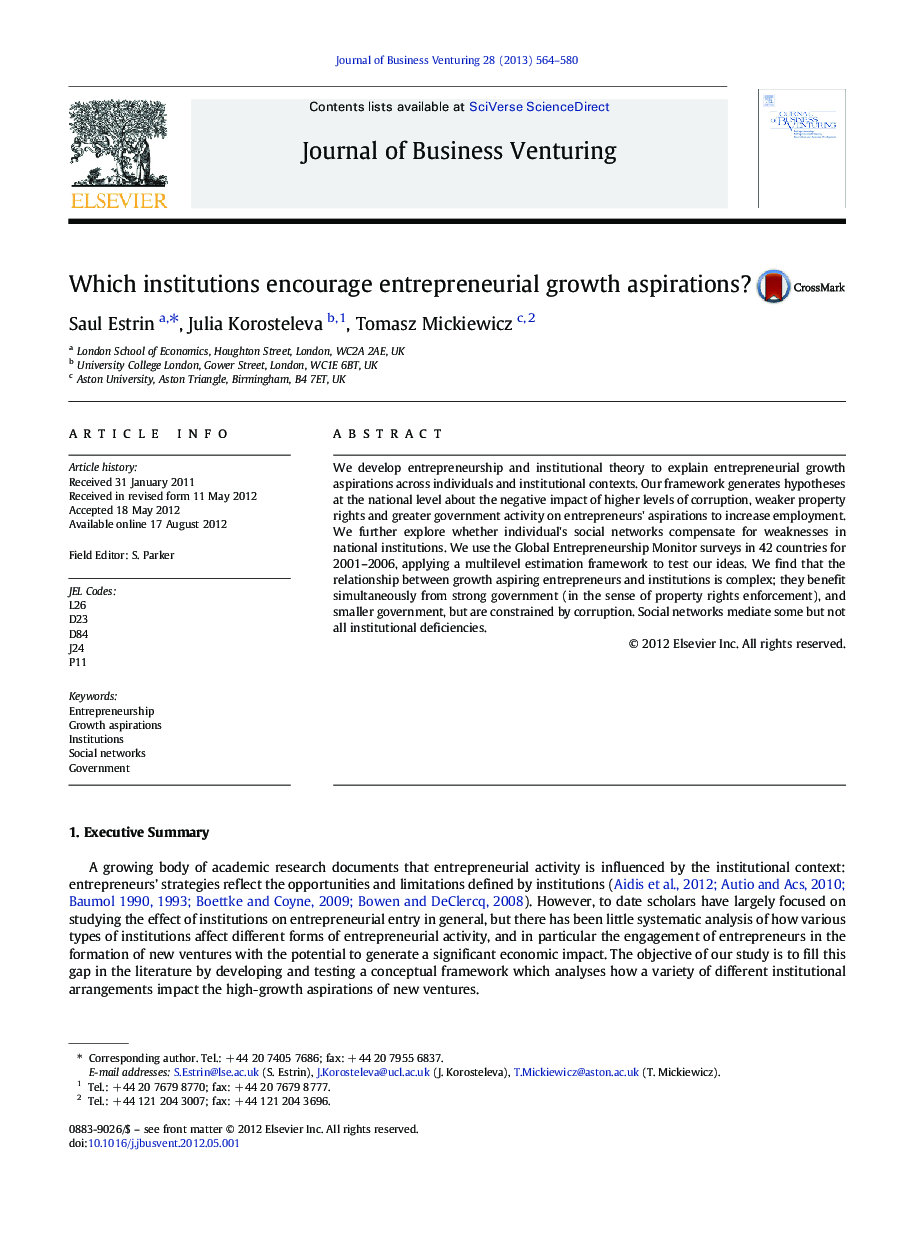| Article ID | Journal | Published Year | Pages | File Type |
|---|---|---|---|---|
| 1019544 | Journal of Business Venturing | 2013 | 17 Pages |
We develop entrepreneurship and institutional theory to explain entrepreneurial growth aspirations across individuals and institutional contexts. Our framework generates hypotheses at the national level about the negative impact of higher levels of corruption, weaker property rights and greater government activity on entrepreneurs' aspirations to increase employment. We further explore whether individual's social networks compensate for weaknesses in national institutions. We use the Global Entrepreneurship Monitor surveys in 42 countries for 2001–2006, applying a multilevel estimation framework to test our ideas. We find that the relationship between growth aspiring entrepreneurs and institutions is complex; they benefit simultaneously from strong government (in the sense of property rights enforcement), and smaller government, but are constrained by corruption. Social networks mediate some but not all institutional deficiencies.
Research Highlights► We develop entreneurship and institutional theory to explain entrepreneurial growth aspirations across individuals and institutional contexts. ► We develop hypotheses at the national level about the negative impact of higher levels of corruptions, weaker property rights and greater government activity on entrepreneurs' aspirations to increase employment. ► We explore whether, at the micro level, knowing other entrepreneurs compensates for weaknesses in institutions. ► We test these hypotheses using the Global Entrepreneurship Monitor in 42 countries, 2001-2006, using multilevel estimation framework. ► We find support for our main hypotheses but intellectual property rights are found to have no explanatory power.
